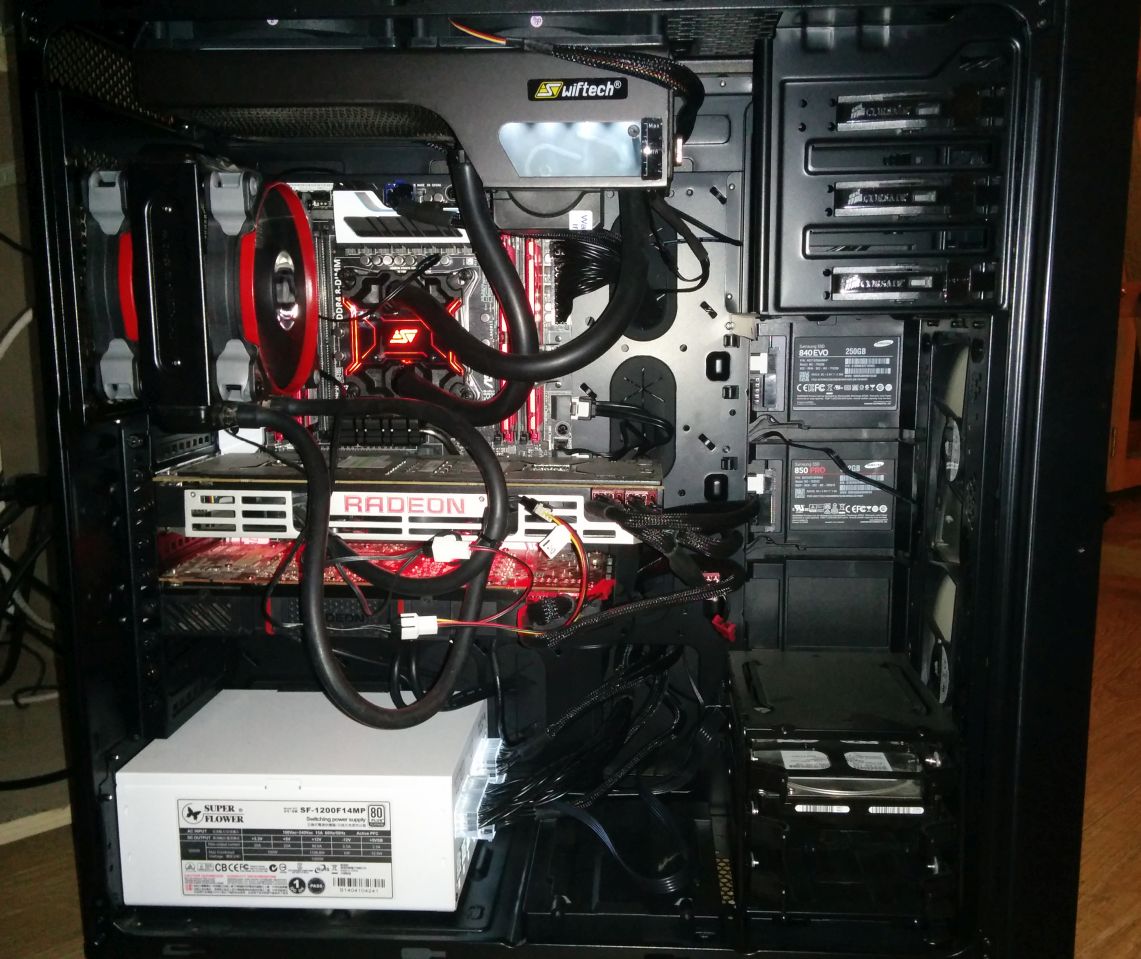Caporegime
- Joined
- 9 Nov 2009
- Posts
- 25,352
- Location
- Planet Earth
They didn't even have 4k monitors available in 2012.
I believe the first consumer 4k monitor was released mid 2013? And used tiling
Unless it was a 4K projector??
Please remember that any mention of competitors, hinting at competitors or offering to provide details of competitors will result in an account suspension. The full rules can be found under the 'Terms and Rules' link in the bottom right corner of your screen. Just don't mention competitors in any way, shape or form and you'll be OK.
They didn't even have 4k monitors available in 2012.
I believe the first consumer 4k monitor was released mid 2013? And used tiling
Also
The 780 wasn't released until 2013, the 980 wasn't released until 2014, and the 980Ti wasn't out until late 2015.
So how were you running 4k in 2012 with triple 780?
 .
.Exclusives have become quite rare across the board since they don't make sense financially. Still PC gaming has the most exclusive games than any other platform.PC gaming imo was way better back when the first xbox came out. Back then the PC had so many exclusives that were real AAA pc only games. These days PC just doesn't get that kind of attention from big developers. There is probably more people playing on PC now but the standard of games and what is being played has changed.
I googled 4k gaming 2012..
November 2013
The pc in the main article cost 8k for an sli titan build.
Monitors were eye-wateringly expensive too.

It would have been 2013 looking back at some of my old photos not going to lie.
I was thinking the 780’s were released earlier, long time ago now though. Did have cards prior but no where near as powerful. Certainly not 4k worthy anyway. Asus released the 321 back in 2013.
4k was very expensive back in the day yes.
4k is still expensive. How much does it cost to do 4k 60fps on the current top quality games?
4k is still expensive. How much does it cost to do 4k 60fps on the current top quality games?
The key thing here is base hardware.
PC gamers can say "Oh we've had SSD's for over a decade - Which is correct, but the only real benefit we've had is faster load times or helping with stuttering in games that have bad streaming (Arkham Knight for example)
The notion of getting a "2080ti" in a £500 console makes it sound like a wonder machine whereas it would have set you back £1000+ for just the GPU. I can understand that but its probably not quite true in reality.
Its not only just loading games. Installing digitally is way faster when on an SSD as most downloads are encrypted or compressed (especially preloads) and the time taken to uncompress/decrypt etc is infinitely faster than a mech.You are 100% correct. PC gamers like to jump on the SSD bandwagon, but are quick to forget that games get little to no benefit from SSD's because the game worlds are still designed for 5400RPM mechanical drives.
So yes your games load a bit faster but thats it.
Now that almost everyone will have a nvme SSD, games will be built from the ground up for SSD's. I played some Star Citizen last night and got to see this in action, even on a nvme drive you can see the effects of the huge amount of data streaming going on.
Its not a good idea to compare the price to Nvidia. Here is why, the 2080 and 2080ti are MASSIVE chips on 12nm, they cost a lot of money to build. On top of this Nvidia likes to add 50% to 60% margin on it's products. AMD adds less margin (typically 30% to 40%) and has a much lower build cost with smaller dies built on 7nm and 7nm+.
Its not a good idea to compare the price to Nvidia. Here is why, the 2080 and 2080ti are MASSIVE chips on 12nm, they cost a lot of money to build. On top of this Nvidia likes to add 50% to 60% margin on it's products. AMD adds less margin (typically 30% to 40%) and has a much lower build cost with smaller dies built on 7nm and 7nm+.
I think Nvidia are adding more than 60% margin on a 2080ti, at least it feels like it by the time it reaches retail
60% margin, source for that figure please.

 AFAIK these companies don't publicly release the breakdown and production cost of each product.
AFAIK these companies don't publicly release the breakdown and production cost of each product.That has nothing to do with 60% profit on each 2080TiAFAIK these companies don't publicly release the breakdown and production cost of each product.
Well, yes. You can't just pluck arbitrary figures out of the air. Why 'for them'So you find it unlikely?
I personally find 60 percent profit well within the realms of possibility for them.



